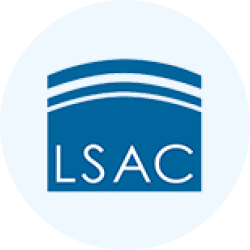LSAT Exam > LSAT Videos > Crash Course for LSAT > Role
Role Video Lecture | Crash Course for LSAT
|
60 videos
|
FAQs on Role Video Lecture - Crash Course for LSAT
| 1. What is the LSAT? |  |
Ans. The LSAT, or Law School Admission Test, is a standardized test used by law schools in the United States and Canada to evaluate applicants for admission. It assesses critical thinking skills, reading comprehension, analytical reasoning, and logical reasoning abilities, which are essential for success in law school.
| 2. How long is the LSAT? |  |
Ans. The LSAT is a half-day exam that lasts for approximately 3 hours and 30 minutes, excluding breaks. It consists of five sections: one reading comprehension section, one analytical reasoning section, two logical reasoning sections, and an unscored experimental section. Additionally, there is a writing sample that is administered separately and is not included in the LSAT score.
| 3. How is the LSAT scored? |  |
Ans. The LSAT is scored on a scale of 120 to 180, with 180 being the highest possible score. The multiple-choice sections are scored based on the number of correct answers, with no penalty for incorrect answers. The raw score is then converted to a scaled score using a statistical procedure known as equating, which adjusts for any variations in difficulty between different test administrations.
| 4. Can the LSAT be retaken? |  |
Ans. Yes, the LSAT can be retaken. In fact, most test takers retake the exam to improve their score. However, there are certain restrictions on how often you can retake the LSAT. In most cases, you can only take the LSAT three times in a two-year period. It is important to note that law schools may see all of your LSAT scores, so it is advisable to prepare thoroughly before retaking the exam.
| 5. How should I prepare for the LSAT? |  |
Ans. Preparation for the LSAT typically involves a combination of self-study, taking practice tests, and possibly enrolling in a prep course. It is recommended to familiarize yourself with the exam format, content, and question types by using official LSAT prep materials. Developing strong critical thinking and analytical skills through regular practice and seeking guidance from experienced test takers or tutors can also be beneficial.
Related Searches




















